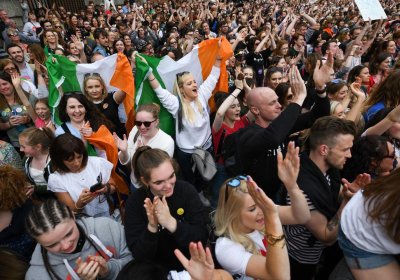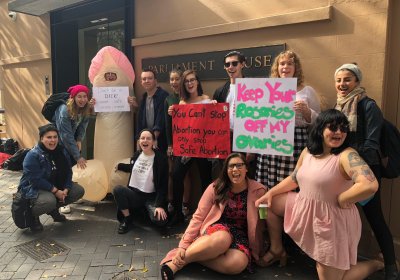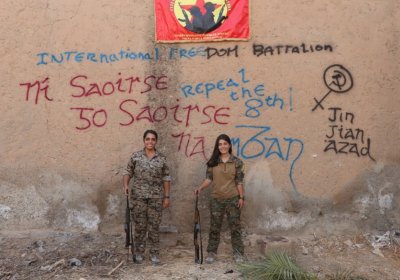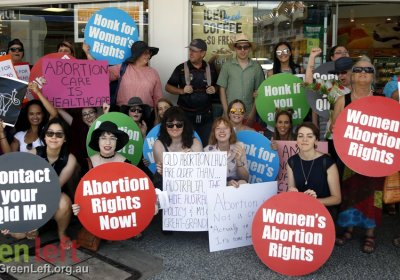Women’s and LGBTI rights activists presented Venezuela’s National Constituent Assembly (ANC) with a series of proposals to legalise abortion and expand sexual and reproductive rights on June 20. This comes in the wake of the vote in Argentina’s Congress to legalise abortion, and at a time when the issue of abortion has gained added importance given the impact Venezuela’s economic crisis has had on women.
Abortion
The British government could intervene to extend reproductive rights to Northern Ireland but it chooses not to, writes Kellie O’Dowd from Northern Ireland’s Alliance for Choice.
Supporters of equality will be surprised to learn that of three motions supporting abortion rights scheduled for debate at the NSW state Labor conference June 30-July 1, party officials are recommending that two be rejected and the third be sent off for further consideration.
The Global Day of Action for Women's Health was on May 28. Around the world, the preceding week was punctuated by significant actions for abortion rights.
The most significant was the resounding Yes vote in the May 25 Irish referendum on removing the ban on abortion from the constitution. This gave a shot in the arm to the campaign for abortion rights in the six counties of Northern Ireland, where the anti-abortion provisions of British Offences Against the Person Act from 1861 remain in force.
Thousands of women marched across Italy on May 26 to mark the anniversary of Italy’s 194 Law, which passed in 1978 and legalised abortion in the country.
“Sexual education to decide, birth control to not abort, legal abortion to not die!” For over a decade, this has been the rallying cry behind Argentina’s National Campaign for the Right to Legal, Safe, and Free Abortion, and for the first time it seems like it may become a reality.
Ireland, one of Europe's most socially conservative countries, has voted by a landslide to liberalise the world's most restrictive abortion laws, Common Dreams noted.
As Ireland prepares for its referendum today, May 25, on repealing the constitutional amendment prohibiting free, safe, legal abortion, women and health workers in Rojava, the largely Kurdish area in Syria's north, have expressed their solidarity with Irish women’s right to choose.
With the exception of the Vatican state and Malta, Ireland has the most restrictive abortion laws in Europe. It exceeds Saudi Arabia and Qatar in its restrictions on women’s rights to basic reproductive health.
Campaigning for a woman right’s to choose in Ireland has stepped up since the announcement of the date and wording of a referendum on changing the constitution to allow abortion.
The referendum, to be held on May 25, will ask voters whether to repeal the section of the Irish constitution that bans abortion. If passed, it would allow parliament to make laws to regulate the procedure.
After a long battle, women will have the right to abortion for therapeutic reasons. Chile’s Constitutional Court announced a bill allowing abortion in such circumstances had been approved on August 21, despite pressure from conservative right-wing forces.
New laws to legalise abortions were passed by the Northern Territory parliament on March 21. The bill passed by 20 votes to four after a lengthy and emotional debate.
The new laws mean the NT joins the ACT, Victoria and Tasmania in decriminalising abortion and stands in stark contrast to NSW and Queensland, which have Australia’s most restrictive abortion legislation.
Nineteen doctors who are current or recent providers of abortion services in Queensland have signed a letter to the state premier calling for abortion decriminalisation to be resolved in the current term of parliament. This follows another delay in achieving legal reform after private member's bills were withdrawn earlier this year.
The signatories include an overwhelming majority of doctors performing abortion in Queensland.
- Previous page
- Page 4
- Next page











